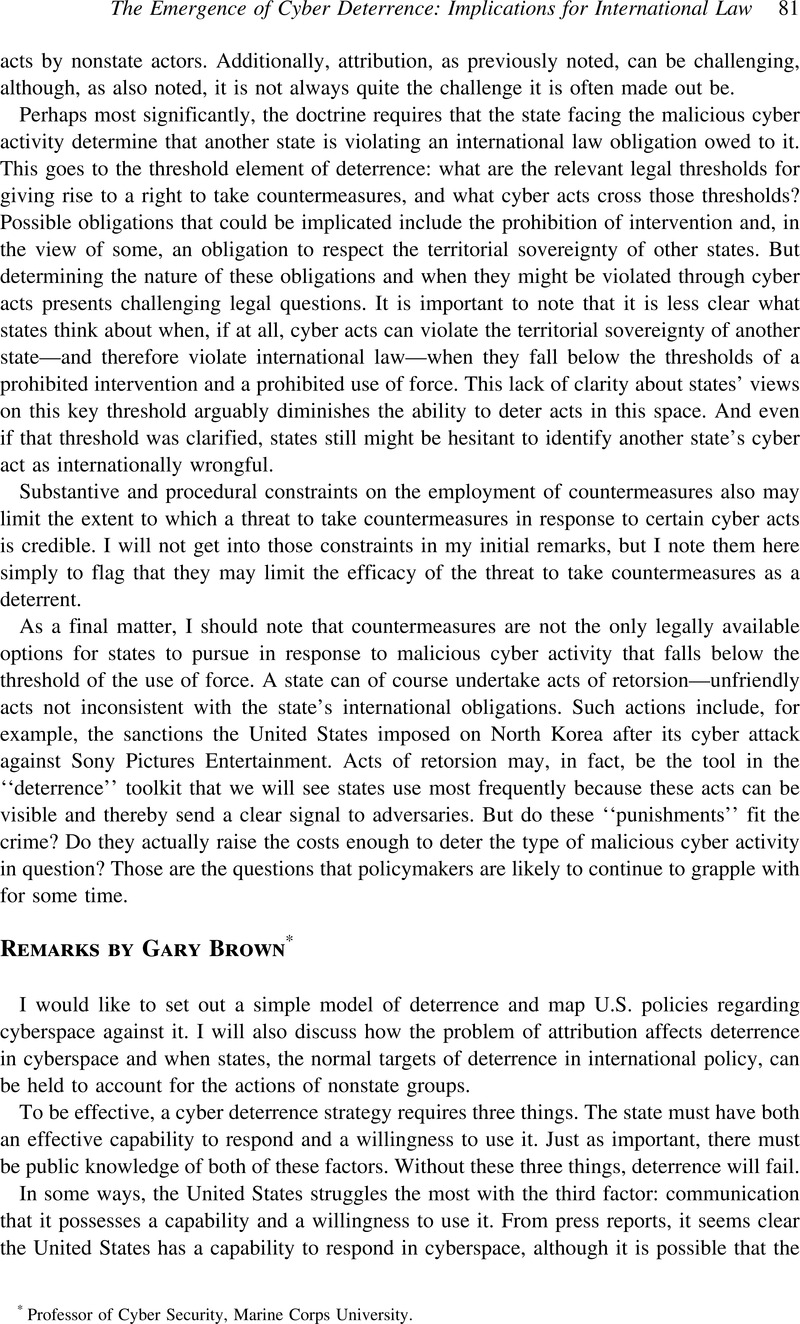No CrossRef data available.
Article contents
Remarks by Gary Brown
Published online by Cambridge University Press: 18 May 2017
Abstract

Information
- Type
- The Emergence of Cyber Deterrence: Implications for International Law
- Information
- Copyright
- Copyright © American Society of International Law 2016
References
1 V.I. Tsymbal, Kontseptsiya “Informatsionnoy Voyny” (Concept of Information Warfare), Speech at the Russia- U.S. Conference in Moscow: Evolving Post-Cold War National Security Issues (Sept. 12–14, 1995), in Timothy L. Thomas, Russian Views on Information-Based Warfare, Airpower J. (special ed. 1996).
2 Russia has been implicated in hostile cyber activity in Estonia, Georgia, and Ukraine. Doug Bernard, Russia Suspected in First-Ever Cyberattack on Ukraine's Power Grid, Voice of America (Jan. 7, 2016), at http://www.voanews.-com/content/russia-suspected-in-first-ever-cyberattack-on-ukraine-power-grid/3135485.html.
3 White House, International Strategy for Cyberspace: Prosperity, Security, and Openness in a Networked World (May 2011), available at https://obamawhitehouse.archives.gov/sites/default/files/rss_viewer/international_strategy_for_cyberspace.pdf.
4 Id. at 14.
5 “The United States will continue to respond to cyberattacks against U.S. interests at a time, in a manner, and in a place of our choosing, using appropriate instruments of U.S. power.” U.S. Dep't of Defense, supra note 1, at 11.
6 Prosecutor v. Tadić, Case No. IT-94-1-l, Opinion and Judgment (Int'l. Crim. Trib. for the Former Yugoslavia May 7, 1997).
7 Mathew J. Schwartz, Russian Cybercrime Rule No. 1: Don't Hack Russians, Bank Info Sec. (Sept. 14, 2015), at http://www.bankinfosecurity.com/blogs/russian-cybercrime-rule-no-1-dont-hack-russians-p-1934; Max Goncharov, Trend Micro, Russian Underground 2.0 (2015), at http://www.trendmicro.fr/media/wp/russian-underground-2-0-wp-en.pdf.

